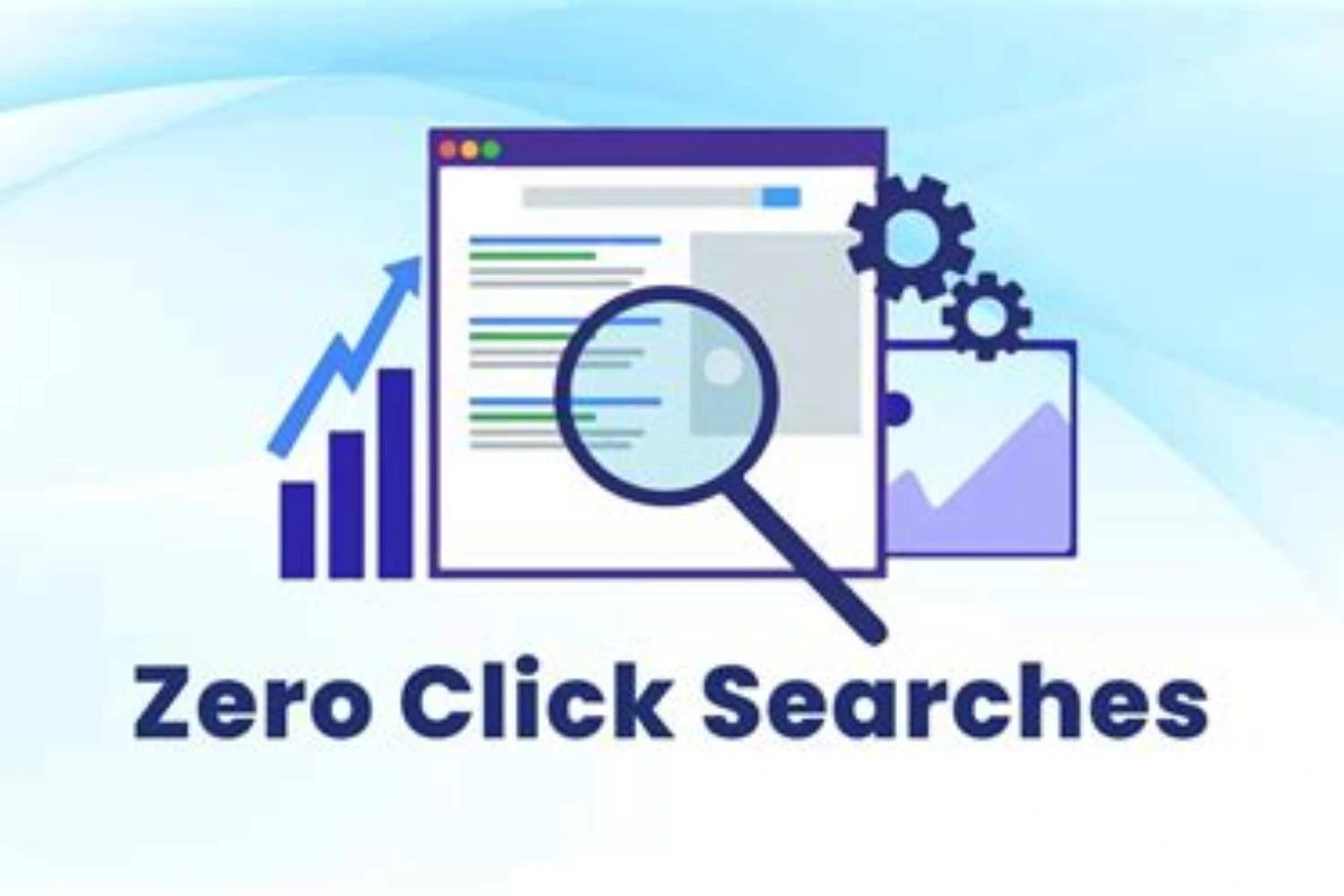How AI Search Engines Like Gemini And ChatGPT Are Reshaping SEO
Digital marketing, especially SEO, has been constantly evolving and adapting to the demands of users. If you’ve been in digital marketing long enough, you must have experienced the pattern – from keyword stuffing in the early 2000s to today’s intelligent algorithms, which are also aligned with AI, such as Google’s Search Generative Experience (SGE). With AI search engines, the game just hit a whole new level because we have got Google Gemini, ChatGPT, Perplexity, and others that think, converse, and predict instead of just searching.
Welcome to the era of conversational search, Generative AI SEO, and intent-based optimization. This era doesn’t just revolve around ranking with simple keyword stuffing, but now it demands the content to be meaningful, contextual, and 100% relevant.
Hence, let’s dive into these changes in the SEO world and how you can leverage such shifts to make your business strategies future-proof.
1. Shift Of SEO – From Keywords To Conversations
There was a time when SEO just meant keywords – small tail keywords or long tail keywords. Many companies relied on keyword stuffing as well to attract major footfall. Brick and mortar shops like coffee would sprinkle the target phrases like magic dust, such as “best coffee shop New York” or “coffee shop near me,” and hoped Google would notice it and rank their page on the first SERPs.
2025 brought up AI search engines aggressively, which means that the old trick doesn’t cut it anymore. Tools like ChatGPT and Gemini don’t just fetch pages with matching words, and people use these platforms to get more advanced results; therefore, they rely on their answers. Gradually, it is predicted to increase.
Therefore, the digital marketing companies have noticed that the focus has shifted from keyword matching to deeper and meaningful conversation making. Instead of typing robotic queries like “cheap flights to Amsterdam,” users now ask the exact question they have in their mind, like “Which airlines offer the best deals to Amsterdam next week?”
Therefore, businesses need to write content that sounds natural, conversational, and context-rich. Today, SEO is less about keywords and more about how people actually converse.
Pro Tip: Optimize for questions, not just queries. Use FAQs, long-tail conversational phrases, and AI-friendly structures like “how,” “why,” and “what.” The chances of picking up the answer will be higher this way.
2. Conversational Search Is Gaining Traction
AI-powered search tools are changing how people interact with the internet. Conversational search is becoming the new norm. Now, users expect human-like answers and not just links.
ChatGPT, SGE, Gemini, or Google Autocomplete don’t just list results; they also summarize insights, skim across the content, and bring up the apt results.
What is the difference then?
Traditional search gives you several blue links under the question, but the conversational AI gives you one smart answer with apt reference links if asked.
For digital marketers, this means your content must be AI-readable. Search engines are now adapting themselves to understand different tones, structures, and flows. These platforms reward content that’s informative, context-aware, and easy to summarize.
If your website speaks like a human, then you’re already a step ahead, and you can polish your business strategy as well by answering more W’s and H’s.
3. Role Of Generative AI In SEO

Enter the world of Generative AI SEO — the fusion of human creativity and algorithms. Generative AI not only analyzes the content but also can create it. From drafting product descriptions to incorporating current industry trends, Generative AI SEO is a powerful ally for digital marketers.
But there is a twist. Generation AI SEO has also been posed as a competitor.
AI can generate instant summaries or draw legit comparisons, and hence, your potential customer or user might never click on your site at all. Therefore, now the biggest challenges are:
- Rank best on the first pages
- Make your content irreplaceable
What should be your strategy?
- Publish original insights, not generic information
- Use first-party data, surveys, and expert commentary
- Build authority through credibility, not volume
In a world where Generative AI SEO is taking the lead, you can’t win by repeating moves. Think ahead and out of the box. Make your content and strategy irreplaceable.
4. Understanding Intent Over Keywords
AI comprehends everything that it reads. This is why search intent now outweighs traditional keyword frequency.
Let’s understand why search intent is quite important behind every query:
- It should be informational, with keywords, for example, “How to build a website?”
- It should be transactional, with keywords, for example, “Best website builder tool.”
- The keywords should be navigational, and you can use keywords like “Yukti Digital Services homepage”
AI search engines identify what the user truly wants and rank content that fulfils that intent best. Therefore, keyword stuffing doesn’t work anymore (never worked)! Instead, focus on mapping content to intent. For example, in your blog posts, answer informational queries, in product pages, solve the basic transactional needs, and in landing pages, make the user interface as smooth as possible, making navigation smooth as butter and inviting for the next time.
5. Voice Search And Multimodal SEO

Almost every home nowadays has smart speakers and mobile assistants, making voice searches more obvious. People aren’t typing anymore; they’re inclined to talk to search for their needs.
The possible changes that have been noticed after the shift from typing to talking are that now the queries are longer and more natural. Voice search SEO is on the roll. For example, “Hey Google, what’s the best small business website builder near me?”
What can you do?
You can optimize your content with more conversational keywords, structured data (schema) for quick answers, and by keeping sentences short and scannable by the search engines.
Now, the SEO is not just confined to text but extended to audio, video, and images as well. It’s now multimodal SEO. AI search engines like ChatGPT can process text, images, and even video together. Imagine users uploading a photo and asking, “Where can I buy this?”
Steer your business to adapt the Voice search SEO for multiple input types, such as text, voice, image, and video.
6. Zero-Click And AI-Generated Answers
Now users get answers without ever leaving the search results. Search Generative Experience (SGE) provides AI-generated summaries, featured snippets, and “People Also Ask” boxes on top of the results, and this means that Google might show your info, but users might not visit your site. Is it worth it then?
It’s a double-edged sword – visibility yet without traffic!
So how can you stay relevant? Here are some ways:
- Optimize for featured snippets and structured data
- Provide deep, actionable content users want to click for
- Add interactive elements (videos, calculators, infographics) that AI can’t replicate easily
If you can’t be the destination, at least be the authority that the destination relies on.
7. Personalization And Predictive Search
AI search engines don’t serve the same results to everyone. Your search engine AI is tailored to your searches and user behavior. Therefore, your search engine AI tailors answers using predictive search and personalization by analyzing user history, location, and behavior.
You can leverage this as well by:
- Focusing on localized SEO with precise geotags and business listings
- Using AI analytics tools to understand user behavior patterns
- Segment your content, for example, by creating different landing pages for different buyer personas
When AI predicts what users want, your job is to make sure your brand shows up before they even ask. Businesses can employ schema markup and structured data that help AI tools understand and cite their web content more easily.
8. Evolving Content Strategies

Adapting and evolving to the new era with AI tools can save your content strategy overall.
And Yukti Digital can help your brand stay ahead in this complex game:
Our experts can help build brand authority with EEAT (Experience, Expertise, Authoritativeness, and Trustworthiness) and boost your chances of being cited by Gemini, ChatGPT, Perplexity, and Claude.
Here are some first steps that create a strong base:
Topic Clusters
We can build pillar pages that will be supported by interlinked subtopics to strengthen the authority of the website, as a corollary of the page ranking.
Humanized Tone
Our website content writers and copywriters help brands write like we talk – making it conversational and emotional because AI detects and rewards the humanized voice in the content.
AI Collaboration
We help you use Generative AI for brainstorming, and always human-edit for creativity and authenticity.
Visual And Interactive Assets
Our creative team will help you capture better images, videos, infographics, and tools that will encourage engagement.
9. Metrics And SEO KPIs In 2026
The traditional “page views” obsession is over now; AI-era SEO demands smarter KPIs. Here is what it observes and rewards on that basis:
Engagement Depth
How long users interact with your AI-optimized content.
Featured Snippet Wins
How often you appear in summaries or AI-generated answers.
Conversational Query Ranking
Visibility in AI-driven or voice-based searches.
Brand Mentions In AI Responses
Whether AI assistants reference your brand.
AI Crawlability
How easily bots can read your structured content.
At Yukti Digital, we’re already helping brands redefine their success metrics, reshaping their content strategy and SEO plans to stay competitive in this AI-powered marketplace.
10. Future-Proofing SEO Strategies
So, what does the future hold?
Only one thing can help you survive – adaptability. The SEO landscape will continue to shift from static optimization to dynamic intelligence. To stay on top:
- Iterate your SEO strategy and update older blogs and articles.
- Use schema markup.
- Make the content more conversational and intent-focused, answering W’s and H’s.
- Add the FAQs, and if they are already on your website, update the answers.
- Update business info such as name, address, and contact number. etc. on search engines or case studies.
- Partner with experts of the industry like Yukti Digital who understand the diverse needs of various brands and businesses, comprehend the working of AI, and leverage it for your benefit.
Conclusion
AI search engines like Gemini and ChatGPT are not just AI-focused tools; they comprehend human intent and, therefore, are set to bring search intent optimization and AI-driven content marketing to another level. Contact our AI SEO professionals now to start optimizing your content today to win the search games of tomorrow.








